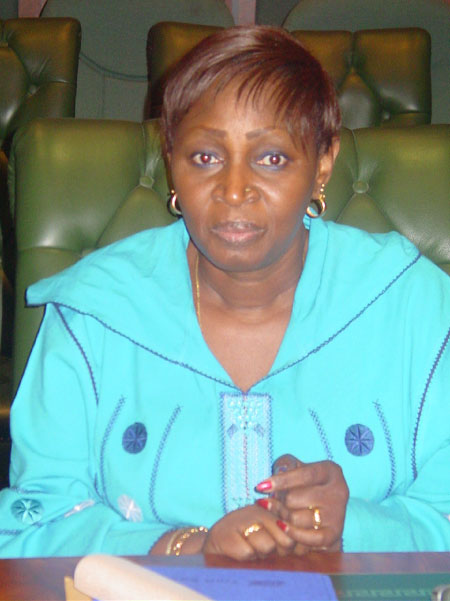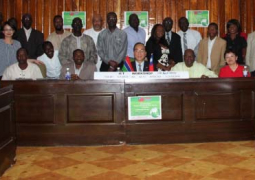
The Ministry of Forestry and the Environment, in collaboration with the African Union Commission and FAO, yesterday commissioned a study on the development of a national Action Plan for the implementation of the Great Green Wall for the Sahara and the Sahel Initiative (GGWSSI).
The validation exercise was held at the Sanyang Nature Camp.
The overall objective of the study is to undertake stocktaking and diagnostic analysis on sustainable land management constraints and opportunities, and to propose a national strategy for the implementation of the GGWSSI, taking into account identified priorities in the NAP-UNCCD and the comprehensive African Agricultural Development Policy CAAP National Investment Plan.
The study also aims at providing guidance on how to promote national ownership of the GGWSSI implementation and alignment of development partners to national priorities.
In his official opening remarks, the permanent secretary of the Ministry of Forestry and the Environment, Hon. Kebba Sonko, expressed delight at seeing a good number of participants at the validation of the draft document.
According to him, land resources are among the most productive ecosystems, with unique environmental and economic benefits to human and animal life for sustainable development.
However, the level of land degradation in The Gambia is estimated to be high, especially on the north bank of the River Gambia.
PS Sonko stated that sustainable land management is recognised as foundation of poverty reduction and sustainable development.
“In many cases, achieving sustainable land management or correcting unsustainable land use practices requires broad-based reforms and policymaking,” he said.
PS Sonko further stated that degradation of land resources in The Gambia has reached a critical stage.
He asserted that the objective of the forum was to validate an Action Plan for the implementation of the Great Green Wall through a participatory process.
Speaking at the forum, the African Union representative, Almami Dampha, said the successful implementation of the Green Wall for the Sahara initiative would be an important milestone in the struggle to free Africa from food insecurity and environmental degradation. The initiative fully complements the Rio family of conventions of the United Nations.
It will particularly strengthen and promote the implementation of the National Action Programmers (NAPs) formulated by member states under the aegis of the United Nations Convention to combat desertification.
The initiative will also no doubt contribute towards the full attainment of the objectives of the climate change and biodiversity conventions.
He said the invasive poverty in rural areas of Africa is inextricably linked to the status of the environment and thus, one of the most sustainable ways of fighting poverty is to address the chronic problem of environmental degradation, adding that the Green Wall for the Sahara initiative aims to improve livelihoods through an integrated set of activities that would ensure rational management and utilization of natural resources.
For her part, on behalf of the FAO Country Representative, Sira Njie said the FAO will continue to provide all the necessary support at its disposal to the Great Green Wall initiative in an effort to improve the management of the region’s natural resources in a sustainable manner.
She also used the opportunity to thank the Government of The Gambia for their continued cooperation and seize the opportunity to reaffirm FAO’s commitment to deepening its collaboration with the Ministry of Forestry and the Environment.



